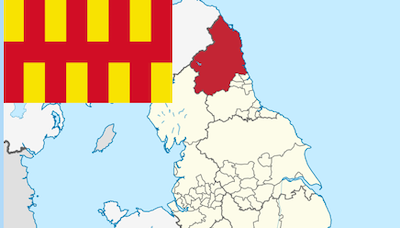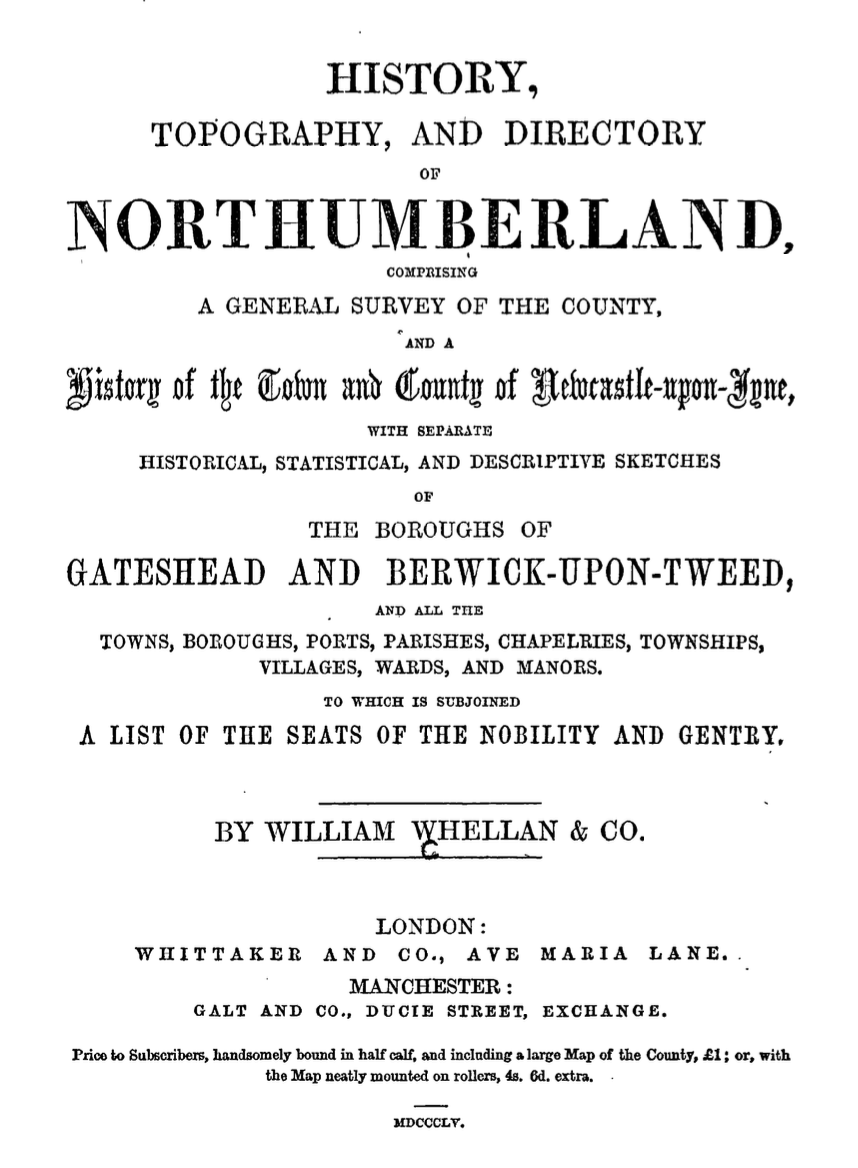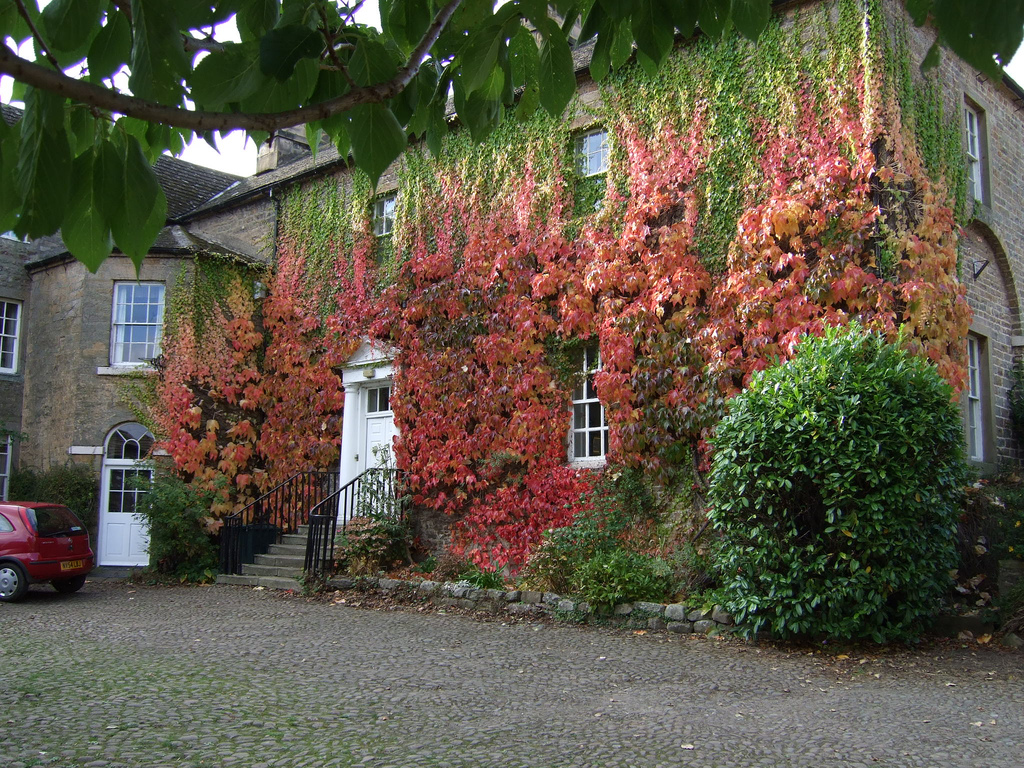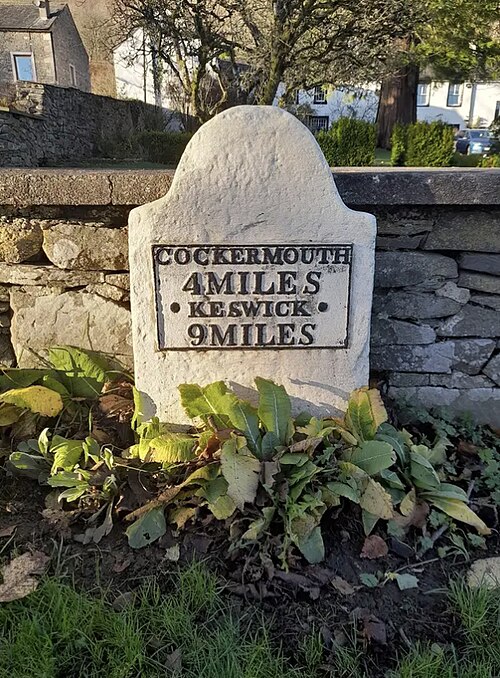Topics > Northumberland > Civil Parishes in Northumberland > Belsay Civil Parish > Bolam Parish, 1855
Bolam Parish, 1855
Extract from: History, Topography, and Directory of Northumberland...Whellan, William, & Co, 1855.
BOLAM PARISH
BOLAM parish comprises the townships of Trewick, in the western division oi Castle Ward; the townships of Bolam, Bolam Vicarage, and Gallow Hill, in the western division of Morpeth Ward; and the townships of Belsay, Bradford, Harnham, and Shortflatt, in the. north-eastern division of Tindale Ward. It is bounded on the north by Hartburn, on the west by Kirkwhelpington, on the south by Stamfordham, and on the east by Meldon and Whalton parishes. The area of the parish is 7,336 acres, and the number of its inhabitants in 1801, was 434; in 1811, 632; in 1821, 651; in 1831, 608; in 1841, 603; and in 1851, 634 souls. It is very fertile, and contains both coal and limestone.
BELSAY is a township and village in the above parish, though locally situated in the north-eastern division of Tindale Ward. It contains 2,516 acres, and its rateable value is £2,074. The population in 1801, was 189; in 1811, 327; in 1821, 327; in 1831, 334; in 1.841, 312; and in 1851, 330 souls. Sir Charles M. L. Monck, Bart., is the sole proprietor and lord of the manor. The manor of Belsay was possessed by Sir John Middleton, in the reign of Edward II. This Sir John Middleton, in conjunction with Walter Selby, and Sir Gilbert Middleton, in 1317, resisted the royal authority, and took possession oi the northern castles, except those of Norham, Bambrough, and Alnwick. During their rebellion they intercepted, between Rushyford and Ferryhill, about six leagues from Darlington, the two Cardinals Joscelin d'Ossat, and Luca di Fieschi, the legates of Pope John XXII., who had been sent to England, to endeavour to terminate the war between England and Scotland. The Cardinals lost all their property, but were allowed to go forward, while the knights and others who escorted them were retained in captivity, till they had paid exorbitant ransoms. In consequence of this daring offence, the estates of Sir John de Middleton were confiscated, and, in 1319, were granted to John de Cromwell and Thomas de Bambrough; but upon the demise of the former, they were transferred to Sir John de Striveling, a celebrated commander, in the reign of Edward Ill., who was summoned to parliament among the barons, in 1343. The manor was afterwards restored to the Middleton family, by the marriage of the daughter and heiress of Sir John de Striveling, to a descendant of the above mentioned John de Middleton. These were succeeded by their son, Sir John de Middleton, whose descendant, Sir William de Middleton, was created a baronet in 1662. He died in 1690, and was succeeded by his son, Sir John, who died in 1721, when the family honours devolved upon his son. Sir William, who dying without issue in 1777, was succeeded by his brother, Sir John Lambert Middleton, who thus became the fourth baronet. On his demise the honours and estates were inherited by his son, Sir William, who for many years represented Northumberland in parliament; he was succeeded by his eldest surviving son, Sir Charles Miles Lambert Monck, who changed his name from Middleton to Monck, in 1799, pursuant to the will of his maternal grandfather. He was High Sheriff of Northumberland, in 1801, and represented the county in parliament, in 1812 and 1818.
THE VILLAGE of Belsay is situated about ten miles W.S.W. of Morpeth. The ancient castle of Belsay, some ruins of which still remain, occupies an elevated situation, and was enlarged and repaired by Sir Charles Middleton, in the early part of the 17th century. A portion of it forms a dwelling for the land-steward. BELSAY HALL, the seat of Sir C. M. L. Monck, Bart., is a splendid edifice in the Grecian style, situated a short distance east of the old castle. The village consists of the ''Arcade,'' a very handsome row of cottages, with a piazza in front, some other houses, and a school.
BELSAY GUIDE POST is a hamlet in this township, half a mile east of Belsay.
HETCHESTER LAW is also a hamlet in this township, situated three miles south by east of Bolam.
POST OFFICE, BELSAY, James Dixon, postmaster. Letters arrive here, from Newcastle at 11 a.m., and are despatched thereto at 7 p.m.
|
Anderson Robert, shoemaker Brodie Robert, shopkeeper Creighton Hugh, painter Dixon James, tailor Gilhespy James, blacksmith Hall William, tailor Harrison Thomas, innkeeper Jobling John, agent, Belsay Castle Mc Vennie Robert, road surveyor Monck Sir Charles Miles Lambert, Bart., Belsay Hall Rutherford Robert, lime-burner |
Sinclair James, shopkeeper Snowball Cuthbert, saddler & ironmonger Thompson Joseph, schoolmaster Watson Michael, joiner
Farmers Charlton Edward, Belsay Barns Hall Henry, West Belsay Harrison Thomas, Dean House Muse John, Belsay Bank Foot Robson William, Red House Short Thomas, Hetchester Law |
BOLAM, a township and village in the parish of the same name, contains 1,119 acres, the property of Lord Decies. Its population in 1801, was 35 ; in 1811, 46; in 1821, 55; in 1831, 67; in 1841, 66; and in 1651, 86 souls. The manor of Bolam was granted to Gilbert de Bolam by King John, but we find it held, in the reign of John's successor, by a son of Waiter de Bolam, and John and James Calcey, and subsequently a mediety of it was possessed by the Raymes family. It was afterwards transferred to the Horsleys, and from them it passed by marriage to the Beresfords, in which family it still remains.
THE VILLAGE of Bolam is situated on a gentle declivity about nine miles west by south of Morpeth. THE PARISH CHURCH, dedicated to St. Andrew, is an ancient Gothic structure, the register of which commences in 1661. It consists of a chancel, nave, south aisle and tower, and contains the figure of a knight-templar supposed to be the effigy of Sir Walter de Bolam, as also a monument to the memory of Charles Middleton, Esq., of Belsay, who died in 1628. The living, a vicarage in the archdeaconry of Lindisfarne and deanery of Morpeth, is valued in the Liber Regis at £6 13s. 4d; gross income £240. The patronage is vested in the Crown. Rev. Septimus Meggison, B. A., vicar. Near the village are vestiges of an entrenchment, the origin of which is very doubtful; and on Bolam Moor is a tumulus of earth, between two large upright stones. BOLAM HALL is a neat mansion beautifully situated, and adjoining it there is a fine lake. It is occasionally the residence of Lord Decies.
DIRECTORY. Lord Decies, Bolam Hall; Matthew Hall, farmer, Bolam White House; Robert Hall, farmer, Low House; John Harle. blacksmith, West House; William Hunter, joiner and cartwright, West House; William Rotchester, farmer, West House.
BOLAM VICARAGE is a township containing 130 acres. The number of its inhabitants in 1801, was 30; in 1811, 16; in 1821, 14; in 1831, 17; in 1841, 17; and in 1851, 14 souls. It consists entirely of the glebe land, which extends from the east side of the church.
DIRECTORY. Rev. Septimus Meggison, B.A., vicar, Vicarage; Robert Davidson, mason and parish clerk; and Robert Wallace, farmer.
BRADFORD is a township and hamlet in the north-eastern division of Tindale Ward, and parish of Bolam, containing 1,033 acres, the property of Sir C. M. L. Monck, who is also lord of the manor. The rateable value is £523, and the number of inhabitants in 1801, was 53; in 1811, 48; in 1821, 48; in 1831, 32; in 1841, 38; and in 1851, 29 soles. THE HAMLET of Bradford is situated on the south side of the Blyth-water rivulet, two and a half miles south-west of Bolam.
DIRECTORY. The farmers are Joseph Charlton, John McKay, and William Robson.
GALLOW HILL is a township and hamlet in the above parish, but locally situated in the west division of Castle Ward. It derives its name from having been in ancient times the place of execution for the Bolam barony. The township contains 603 acres, the property of Lord Decies, who is also the lord of the manor. Its population in 1801, was 43; in 1811, 61; in 1821, 74; in 1831, 33; in 1841, 41; and in 1851, 46 souls. Tithes commuted in 1839; aggregate amount £9 16s. 6d. to the vicar of Bolam, and £62 18. 4d. to the impropriators. THE HAMLET of Gallowhill is situated about eight and a 1Ja1f miles west by south of Morpeth.
DIRECTORY. William Brewis, Henry Pye, and John Shanks, farmers.
HARNHAM is a township and small village in Bolam parish, and the north-eastern division of Tindale Ward. It contains 679 acres, and Thomas and Joseph Edward Leighton are the principal proprietors. The number of inhabitants in 1801, was 46; in 1811; 56; in 1821, 61; in 1831, 73; in 1841, 75; and in 1851, 77 souls. The tithes were commuted in 1839; aggregate amount £18 11s. 2d. impropriate, and £10 3s. 5d. vicarial. THE VILLAGE of Harnham is situated one mile and a half south-west of Bolam, and ten miles W.S.W. of Morpeth, on the summit of a stupendous crag, which was in ancient times crowned by a small fort. Bernard de Bebington held this estate in capite in the year 1272, and we find it held by his descendant, Colonel Philip de Babington, in the reign of Charles II., when Catherine his wife, having died while under sentence of excommunication for contempt of ecclesiastical censure, was refused Christian burial, and was interred in a vault cut out of the solid rock, where, in 1760, most of the lead coffin and some of the bones were remaining. Speaking of Harnham, Wallis observes '' It stands on an eminence, and has been a place of great strength and security, a range of perpendicular rocks of rag-stone on one side, and a morass on the other, the entrance is by a narrow declivity to the north, which, in the memory of some persons now living, had an iron gate. The manor house is on the south-west corner of the precipice.''
SANDYFORD is a. hamlet in this township, situate one mile and a half north of Harnham.
DIRECTORY. John Hunter, blacksmith; Joseph E. Leighton, yeoman; Thomas Leighton, yeoman; Joseph Stott, cartwright; Mr. Mark Wanless; and James Young, shoemaker.
SHORTFLATT is a township and hamlet in the above parish, but locally situated in the north-eastern division of Tindale Ward. It contains 511 acres, the property of F. D. Dent, Esq., and its population in 1801, was 20; in 1811, 32; in 1821, 22; in 1831, 22; in 1841, 33; and in 1851, 30 souls. Tithes commuted in 1839; aggregate amount £10 19s. 6J. due to the vicar of Bolam, and £11 5s. 6d. to the impropriators. Shortflatt was for a long period the property of the Raymes family, from whom it passed to the Fenwicks, and subsequently to the present proprietor. THE HAMLET of Shortflatt is situated about nine and three-quarter miles W.S.W. of Morpeth. The principal resident is Matthew Hall, farmer.
TREWICK is a township and hamlet in the western division of Castle Ward. and parish of Bolam, the property of Sir 0. L. M. Monck, Bart. It contains 745 acres, and the number of its inhabitants in 1801, was 18; in 1811, 46; in 1821, 50; in 1831, 30: in 1841, 21; and in 1851, 22 souls. Tithes commuted in 1839; aggregate amount £61 18s. 11d. due to the impropriators, and £9 9s. 6d. to the vicar of Bolam. THE HAMLET of Trewick is situated on the north side of the river Blyth, eight miles south-west by west of Morpeth.
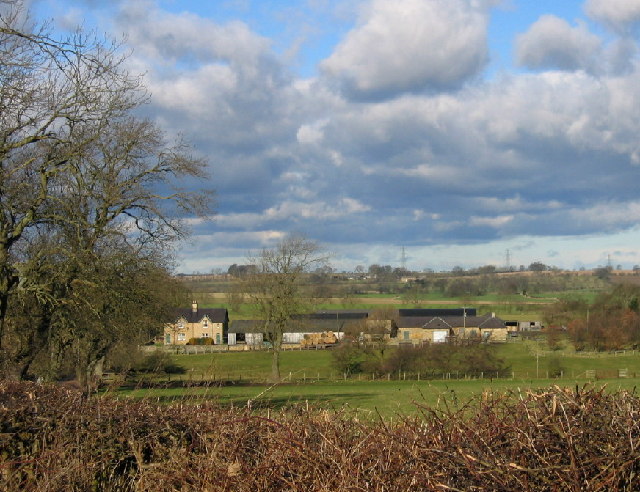
Co-Curate Page
East Trewick
- Overview Map Street View East Trewick is a farm, located about ½ mile north-east of Belsay in Northumberland. The medieval settlement of Trewick was located here, first documented in the …
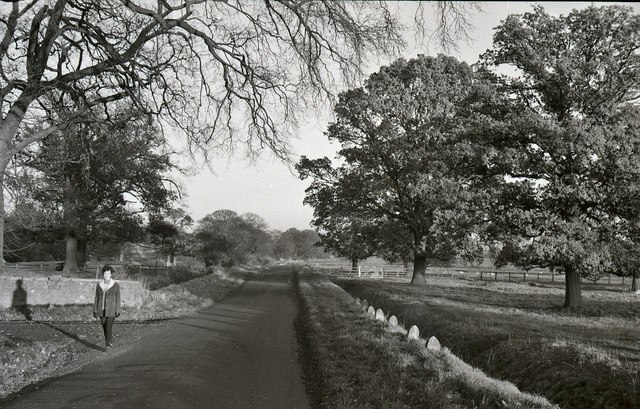
Co-Curate Page
Bolam
- Overview Map Bolam in Northumberland is in the civil parish of Belsay. It was once a thriving village with its own market and the permission to hold fairs.[1] However, it …
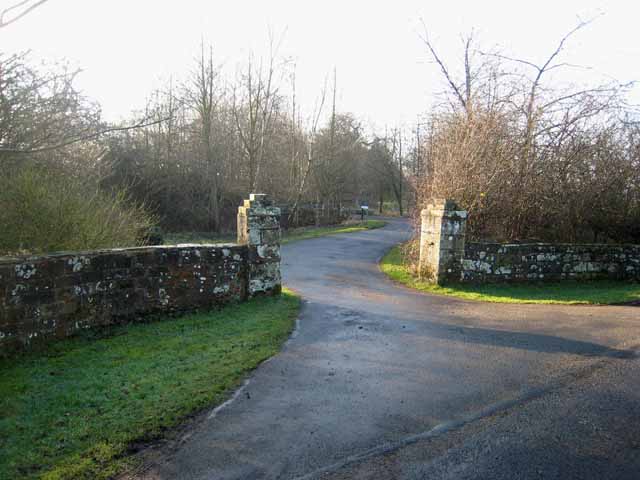
Co-Curate Page
Shortflatt Tower
- Overview Map Shortflatt Tower is a historic house and defensive tower in the civil parish of Belsay, and located close to Bolam, Northumberland. Originally built in 1257, permission to crenellate …
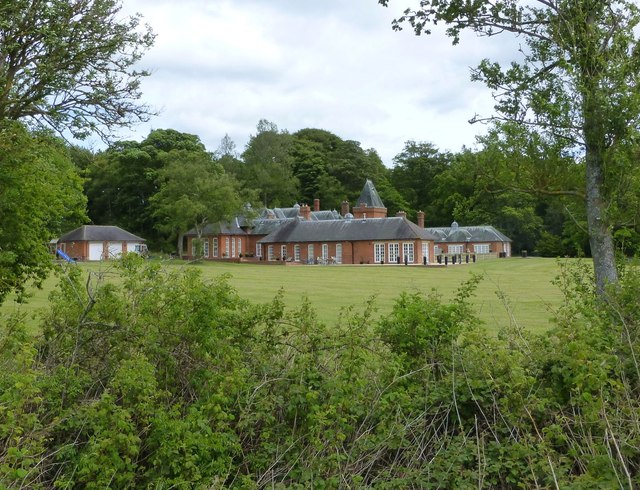
Co-Curate Page
Gallowhill
- Overview Map GALLOW-HILL, a township, in the parish of Bolam, union of Castle ward, W. division of Morpeth ward, N. division of Northumberland, 8¾ miles (W.S.W.) from Morpeth; containing 41 …
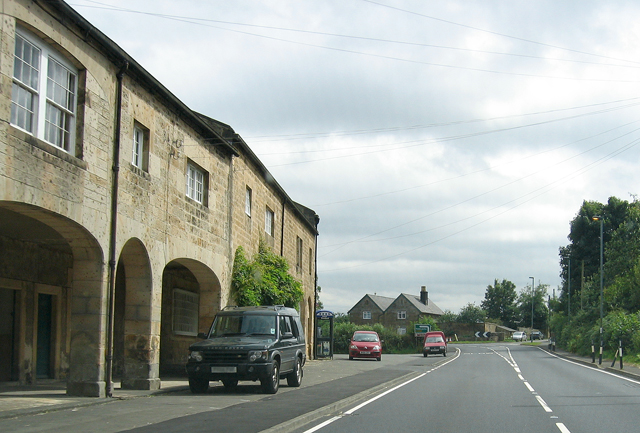
Co-Curate Page
Belsay
- Overview About Belsay Map Street View Belsay, Northumberland Belsay is a village in Northumberland, England. It is situated about 5 miles from Ponteland on the A696 which links the village …
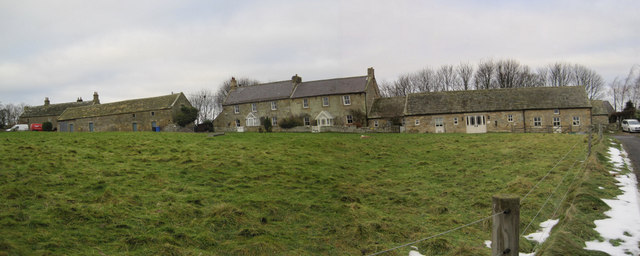
Co-Curate Page
Harnham
- Overview Map Street View Harnham is a hamlet in Northumberland, located about 8 miles south-west of Morpeth and 2 miles north-west of Bolam. Harnham Hall here dates from the 16th …
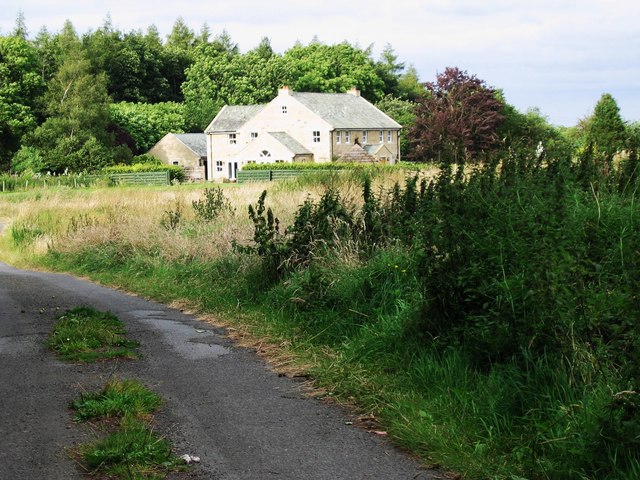
Co-Curate Page
Bradford (nr Bolam)
- Bradford is a hamlet near Bolam in Northumberland (not to be confused with Bradford near Bamburgh, also in Northumberland). Sometimes referred to as South Bradford. BRADFORD, a township, in the …


Co-Curate Page
East Trewick
- Overview Map Street View East Trewick is a farm, located about ½ mile north-east of Belsay in Northumberland. The medieval settlement of Trewick was located here, first documented in the …

Co-Curate Page
Bolam
- Overview Map Bolam in Northumberland is in the civil parish of Belsay. It was once a thriving village with its own market and the permission to hold fairs.[1] However, it …

Co-Curate Page
Shortflatt Tower
- Overview Map Shortflatt Tower is a historic house and defensive tower in the civil parish of Belsay, and located close to Bolam, Northumberland. Originally built in 1257, permission to crenellate …

Co-Curate Page
Gallowhill
- Overview Map GALLOW-HILL, a township, in the parish of Bolam, union of Castle ward, W. division of Morpeth ward, N. division of Northumberland, 8¾ miles (W.S.W.) from Morpeth; containing 41 …

Co-Curate Page
Belsay
- Overview About Belsay Map Street View Belsay, Northumberland Belsay is a village in Northumberland, England. It is situated about 5 miles from Ponteland on the A696 which links the village …

Co-Curate Page
Harnham
- Overview Map Street View Harnham is a hamlet in Northumberland, located about 8 miles south-west of Morpeth and 2 miles north-west of Bolam. Harnham Hall here dates from the 16th …

